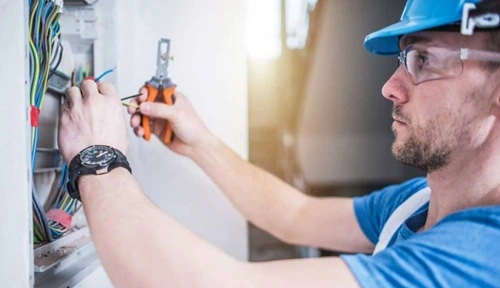Yes, in most cases, it is illegal to do electrical work without a license in the United States, particularly for work done in residential, commercial, or industrial settings. State and local laws generally require electricians to hold valid licenses to ensure safety, compliance with building codes, and protection against hazards such as fires and electrocution.
Understanding Electrical Licensing Requirements
1. Why Licenses Are Required
Electrical work involves handling complex systems that, if improperly installed or repaired, can result in serious safety risks, including electrical shocks, fires, and damage to property. Licensing requirements ensure that electricians are trained and knowledgeable about national and local electrical codes.
2. Federal and State Regulations
Electrical licensing laws are primarily governed at the state and local levels, though national standards, such as the National Electrical Code (NEC), provide guidelines that states and municipalities adopt.
- State Licensing: Most states require electricians to be licensed to perform electrical work, whether as contractors or journeyman electricians. Licenses are typically issued after the completion of training, apprenticeship programs, and exams.
- Local Permits: In addition to a license, many municipalities require permits for specific electrical projects, such as wiring a new building or upgrading an electrical panel.
When Electrical Work Without a License Is Illegal
1. Residential and Commercial Properties
Performing electrical work on residential or commercial properties without a license is almost universally illegal. This includes:
- Installing or replacing wiring.
- Upgrading circuit breakers or electrical panels.
- Adding outlets or fixtures.
Violating licensing laws in these contexts can lead to fines, project shutdowns, and legal liability for damages or injuries caused by faulty work.
2. DIY Homeowners
Some states allow homeowners to perform minor electrical work on their primary residence without a license, provided they comply with local building codes and obtain necessary permits. However, this is highly restricted and may not cover complex tasks like panel upgrades or rewiring.
3. Professional and Commercial Settings
Unlicensed individuals performing electrical work for compensation, particularly in commercial or industrial settings, face severe penalties. Employers who hire unlicensed workers may also be liable for violations.
Penalties for Performing Electrical Work Without a License
The penalties for performing unlicensed electrical work vary by state and jurisdiction but can include:
1. Fines: Violators may face fines ranging from a few hundred to several thousand dollars per violation.
2. Cease and Desist Orders: Regulatory agencies can issue stop-work orders for projects being performed without proper licensing.
3. Criminal Charges: In severe cases, unlicensed work that causes injury or damage may lead to misdemeanor or felony charges, resulting in jail time.
4. Liability for Damages: If unlicensed work causes harm or property damage, the individual may be held liable in civil court.
5. Revocation of Permits: Any permits associated with a project may be revoked if unlicensed work is discovered.
Exceptions to Licensing Requirements
1. Homeowners
Some states, such as Texas and California, allow homeowners to perform certain types of electrical work on their primary residence without a license. However, they must:
- Obtain permits from local authorities.
- Pass inspections to ensure code compliance.
- Adhere strictly to state and local electrical codes.
2. Maintenance Workers
In certain jurisdictions, maintenance staff at facilities like apartment complexes may be allowed to perform minor repairs, such as replacing fuses or light fixtures, without a license. However, major electrical work typically requires a licensed professional.
Recent Legal Updates (2023-2024)
1. Stricter Enforcement
States like Florida and New York have increased penalties for unlicensed electrical work, including higher fines and more frequent inspections, to address safety concerns.
2. Licensing Reciprocity
Some states have introduced reciprocity agreements, allowing licensed electricians to work across state lines without obtaining additional licenses. This aims to address labor shortages in the construction industry.
3. Increased Oversight of DIY Work
Municipalities are cracking down on unpermitted DIY electrical work, requiring more frequent inspections and imposing stricter penalties for violations.
FAQs About Electrical Work and Licensing
Q1. Is it illegal to perform electrical work on your own home without a license?
Ans: It depends on the state. Some states allow homeowners to do minor electrical work, like replacing outlets, but major work typically requires a licensed professional and permits.
Q2. Can a handyman do electrical work without a license?
Ans: No, handymen are generally not allowed to perform electrical work unless they hold a valid electrician’s license. Minor tasks like changing lightbulbs may be permissible.
Q3. What are the penalties for unlicensed electrical work?
Ans: Penalties include fines, stop-work orders, and potential criminal charges, particularly if the work leads to injuries or property damage.
Q4. Can unlicensed electrical work void insurance coverage?
Ans: Yes, if unlicensed work causes damage or injury, insurance companies may deny claims related to the incident.
Q5. How do I verify an electrician’s license?
Ans: Most states provide online verification tools where you can check if an electrician holds a valid license and whether it covers the scope of work you need.


